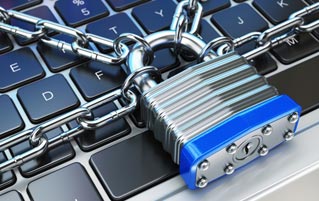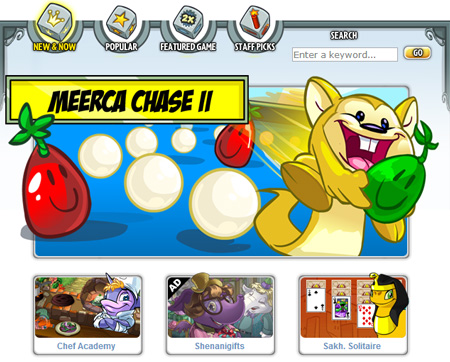Here's Why You Need A VPN (And How To Get One)

This piece was written by the people who run the Cracked Store to tell you about products that are being sold there.
If you've noticed a huge uptick in the amount of articles on the internet advocating for VPNs, it isn't just the Baader-Meinhof Phenomenon. (Isn't learning fun?) Interest in Virtual Private Networks has more than doubled in the last five years, and that's because changing your password to something other than PASSWORD is no longer considered the bare minimum in cyber security. There are plenty of reasons this privacy tech should have a place in your life, but you should know some basic information before diving in.
What Even Is A VPN?
A Virtual Private Network does exactly what it says on the tin. It's an extension of your private network, which is everything that connects to your home WiFi, but with a reach that expands across the rest of the internet. Why is this useful? Because it lets you conveniently use resources on other private networks as if you were physically plugged into their servers. You can be anywhere with that kind of awesome power.

It might not put you in the X-Men, but at the very least, you'll be Xavier's trusted tech support.
OK ... But What Can I Do With It?
The first thing most people think when they hear VPN is "that's the computer doodad that lets me watch Ukrainian Netflix, right?" And it's true. VPNs allow you to reap all the benefits of an on-demand international IP address so you can chill out in your New York apartment and watch Portuguese Top Gear or The Great Spanish Lobster Bake, or whatever is hipster vogue that day.
But where a VPN really shines is by protecting you from your own internet service provider. Your ISP can and will use your browser traffic against you, whether by narcing on you for copyright infringement when you pirate music or by throttling your download speeds when you hit your completely unnecessary bandwidth cap. And because of our deeply entrenched regional telecom monopolies, this is unlikely to change anytime soon.
Why Is This Suddenly Necessary?
Because so many critical services have moved online, there's more personal information being shared than ever before. You can manage money, apply for jobs , or reopen your 1998 Neopets account at a moment's notice. But any poorly secured website could put your address or social security number on blast. Even if you have nothing to hide, your mere online presence gives away location details and all kinds of metadata. They know about your Neopets. They know.
That's because your internet service provider can see everything that comes through its pipes. And thanks to the recent rollback of online privacy protections by Congress, nothing can stop them from selling your data to the highest bidder. And even worse news, we have it on good authority that internet companies are staffed solely by pig-demons who spend their days wringing their hooves together in maniacal laughter. What are they laughing at?

Probably your poorly curated Neopets account.
What Makes A "Good" VPN?
One of the most important aspects of a VPN is that it uses a secure protocol to ensure that your data stays hidden. There are a bunch of acronyms that we could throw around now that detail a secure protocol, like TLS/SSL/etc., but unless you were raised in the Matrix, that would get confusing. As a good rule of thumb, the more random letters your VPN strings together, the better.
Your VPN should also never, ever keep logs of your activity. By storing user data long-term, they can be legally compelled to share it with authorities, which could result in, and this is legal-speak, you getting mega-boned. Plus, a good VPN will give you a fast enough connection to actually enjoy the internet. If your provider serves too many users over too few servers, you're gonna be stuck with 56 kbps speeds. In case you don't understand how slow that is, you'd get to websites faster if you abandoned the keyboard entirely and just threatened to punch your computer until it complied.
Finally, your VPN shouldn't be too restrictive with what devices it allows on its network. If it only permits two simultaneous connections, you're gonna be doing a fair amount of logging in and out to maintain privacy across laptops, smartphones, tablets, and whatever random surface Apple decides to turn into a computer next. (Fingers crossed for the iFlask.)
Alright, You Got Me. Which VPN Should I get?
The VPN market has exploded to meet the rising demand for online privacy, but much like snowflakes and Eminem albums, not all are created equal. Free VPNs are often lacking in many key areas, as they make no guarantees of data security, longevity, or logging confidentiality. Premium subscriptions aren't always shining bastions of digital freedom either, so you need to weigh the benefits of security and convenience with price and accessibility.
For most people, though, a subscription to KeepSolid's VPN Unlimited Infinity Lifetime Plan will give them everything they want and more. This VPN boasts tons of server locations worldwide, and offers a variety of options for security protocols. It is fully functional with P2P torrenting, and permits up to ten simultaneous device connections to give your household a spacious digital panic room. A lifetime subscription to VPN Unlimited usually costs $500, but you can pick one up in our store for just $55.99. You can also save an additional 15 percent with the coupon code: INFINITY15.
Your hardware needs just as much tender, loving care as your software. So check out this juggernaut of a iPhone Case with Airo Shock Protection. If you've suddenly found yourself in a cheesy science fiction alien movie, this Waterproof iPhone Case might be more your speed.
For more ways to double up on your techno-protection, check out 6 Foolproof Methods To Protecting Your Smart Device.
